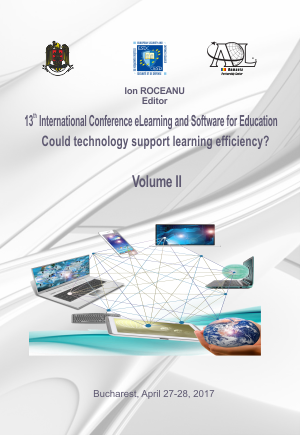REFLECTIONS ON THE RESULTS OF EXPLOITING A DIGITAL TOOL IN MONITORING THE CONVERGENCE OF UNIVERSITY WITH THE LABOUR MARKET
REFLECTIONS ON THE RESULTS OF EXPLOITING A DIGITAL TOOL IN MONITORING THE CONVERGENCE OF UNIVERSITY WITH THE LABOUR MARKET
Author(s): Venera-Mihaela Cojocariu, Iulia DĂMIANSubject(s): Social Sciences
Published by: Carol I National Defence University Publishing House
Keywords: labour market; monitoring the convergence of university with the labour market; informatics tool; SharePoint platform.
Summary/Abstract: The labour market has increasingly begun to impose, intensively and insistently, criteria for the competence profile of graduates. All the more important is its relationship with the university, providing, to the latter, anongoing and dynamic feedback on the job offer and demand for graduates with a certain profile and level of training. During July-December 2016, the Department of Professional Counselling from Vasile Alecsandri University of Bacău has implemented the project Professional Development and Employability – the convergence of university and labour market (DeProfAn) obtained in a CNFIS-FDI national competition (institutional development funds). It concerned the design, implementation and exploitation of a dedicated SharePoint platform to achieve its main objectives in relation to the labour market: monitoring the graduates’ insertion on the labour market; determining the degree of satisfaction of students and graduates in relation to the training and services offered by the university; identifying the point of view of employers regarding the quality of the graduates’ training. Realistically, platform implementation in monitoring the convergence of university with the labour market takes the form of an experiment. Its production period was 6 months (July-December 2016), the target group was 832 beneficiaries (500 students, 300 graduates, 32 employers).Through this study we aim: to illustrate how such an informatics tool may be achieved / may operate with relatively few funds; to highlight the main streams of data that we intend to collect; to globally interpret the main data sets obtained in terms of the efficiency of the achieved tool; to address the informatics tool and the results obtained through a SWOT analysis, having as a benchmark further development in the future.
Journal: Conference proceedings of »eLearning and Software for Education« (eLSE)
- Issue Year: 13/2017
- Issue No: 02
- Page Range: 337-344
- Page Count: 8
- Language: English

